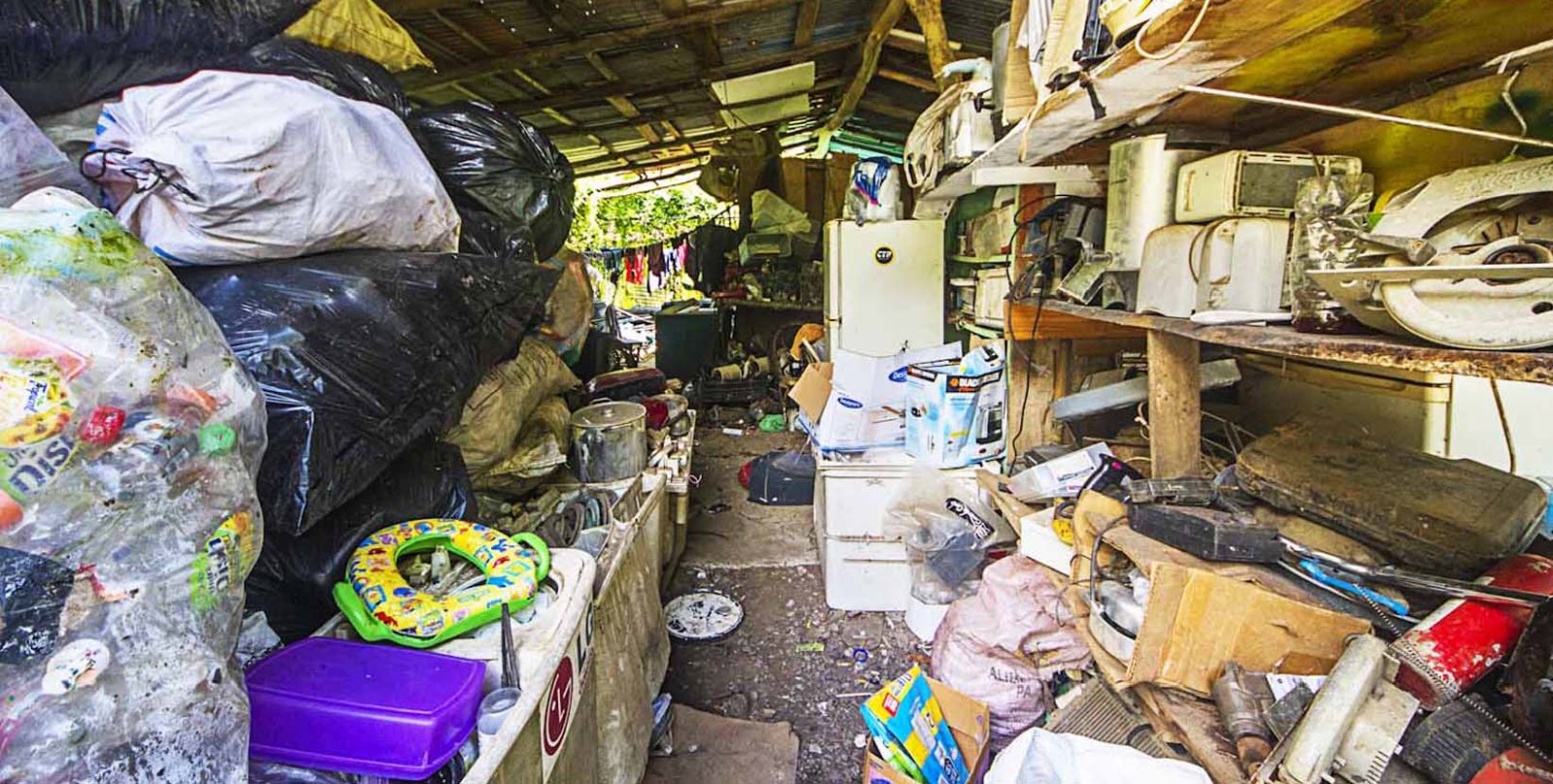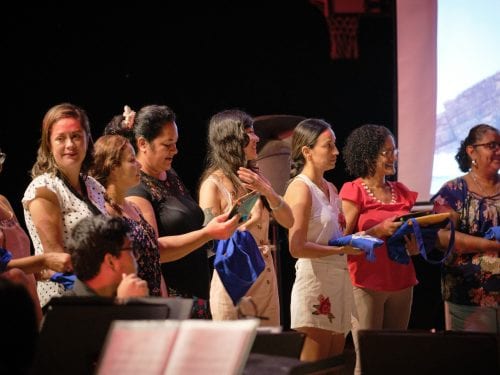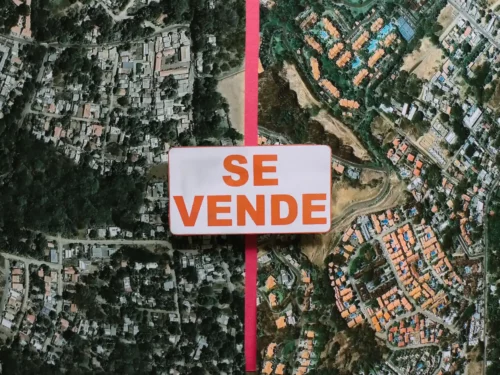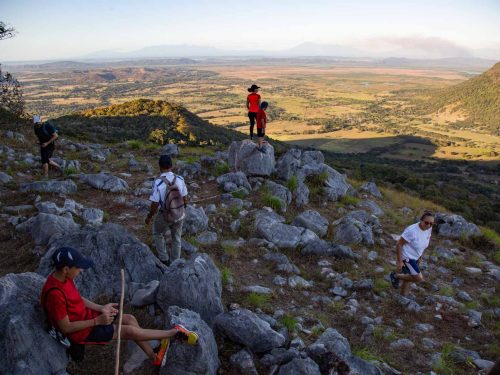
There are people who have dedicated themselves to garbage, even living with it in homes that they have converted into recycling businesses. The Voice decided to visit some of these collection centers in the area of Nosara and Samara to find out about the challenges of the garbage collector lifestyle.
The collection centers receive recyclable waste such as plastic bottles, glass, Tetra Brik (Tetra Pak), electronics, appliances and solid materials such as iron, copper and aluminum. Some even accept all types of waste including garbage and take charge of separating and cleaning it.
Elena Barreto and Heriberto Castillo, known as Sigarron, have run one of the collection projects for 9 years now, located in Nosara down the first road to the right from the current gas station. By 2011, they had collected more than 272 tons of recyclable material and at least another 150 tons in the last two years.
They were among the first who came to Nosara to recycle. They moved from Samara to clean up the area, which they recall as being like a dump everywhere. “We thought it was important for Costa Rica to take advantage of the materials,” recapitulates Barreto.
They started cleaning the streets and picking up trash on the beaches. Currently they collect trash and recyclable wastes from neighboring houses and do not charge a fee for doing so. They use the money they receive for delivering the material to live and to work. Barreto and Castillo receive all types of plastic and say they need help from someone to recycle hard plastic, for example the kind used in washing machine motors, training potties for babies or containers of thick plastic, which is not received at the local dump or in other recycling centers, and transportation by truck isn’t paid for either.
The workers from the different collection centers have noticed that most Ticos do not separate their trash. They throw everything in the same bag, sometimes even food waste.
“There still isn’t awareness. Most people take the garbage and throw it all in the dump and don’t separate it or anything. Our job here is to separate, recycle, clean and store it until the trucks come,” comments Castillo.
Elena thinks that foreigners have a recycling culture and this makes their job easier. “I stress that Europe does recycle and here there are Europeans who have to be congratulated. They bring us the recycled Tetra Brik packages crushed and bagged. We just store it until the trucks come from San Jose.”
Neyber Alberto Chavarria and his mother Santos Esperanza Acevedo work in the Panama neighborhood, a little past Garza when heading towards Nicoya. They receive waste from Samara, Nicoya and Hojancha. Chavarria began recycling work as a diver in the Nosara dump and now operates his own collection center.
Neyber goes out with his truck on Tuesdays and Fridays in low season and almost every day in high season. “Sometimes I wish that the companies would support us at least with fuel, which would save us quite a bit. The work one does, not just anyone does it,” he said.
In addition to the cost of gas, these workers find it difficult to meet the requirements to get permits from the Municipality and the Ministry of Health , which involves an investment of money, taxes and time. The money generated by the collection center for many is just enough to live on in very humble conditions.
Another challenge is the limited space in many properties. “We do not have room to receive some materials like paper that has to be kept under a roof. Here there are leaks all over and it attracts cockroaches,” said Castillo.
Due to various illnesses and insects, it is important that all of the waste materials are cleaned and stored until the different companies’ trucks pick them up . The centers often run out of space and for some it is difficult to store the material since their house is on the same property.
Despite the challenges, they continue in their efforts to address the problem of garbage in the area. “It’s hard for us to survive here. We live from the material we deliver. It is very difficult but little by little we are making progress. The prices are too low. It’s about helping. If we lived just from recycling, we would starve,” Barreto and Castillo relate.
According to Castillo, the sale of recyclable materials pays 100 colones (about 20 cents U.S.) per kilo for plastic, 45 colones (9 cents) per kilo for iron, 1750 colones ($3.50) per kilo for copper, 375 colones (75 cents) per kilo for aluminum and 33 colones (6.6 cents) per ton for glass. Recyclable Material Prices
Plastic 100 colones per kilo Iron 45 colones per kilo Copper 1750 per kilo Aluminum 375 colones per kilo Glass 33 colones per ton







Comments